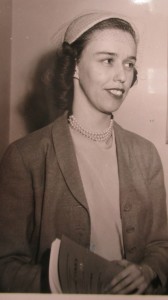Growing up, I had the good fortune to live with my family for long summer stretches in Ephraim, Wisconsin. It’s a small, beautiful town on Green Bay, and in the summer it’s a resort/vacation spot. A heart of local commerce is Wilson’s restaurant and ice cream parlor.
In 1974, having just turned thirteen, I worked at Wilson’s as a busboy. The shifts were 4-midnight. The pay was minimum wage. The place was busy and fun. At the end of each night, the perks included, always, free ice cream sundaes and sometimes, just across the road, moonlight swimming.
This is my memory of Thursday, August 8, 1974. The White House had announced that President Nixon would be addressing the nation that evening. The papers, filled with news of Watergate, the “smoking gun” tape, the collapse of congressional support for the President, and his certain impeachment, reported that he would be announcing his decision to resign.
I was at Wilson’s, either working or just hanging out. It had, in one side of the restaurant, a jukebox that played constantly. At this appointed hour, however, someone unplugged it. Someone produced a television, balanced it with care on the rounded glass top of the jukebox, and turned on a network. The room, and the rest of the crowded restaurant, fell silent.
The President came on and spoke. He announced, decisively, tragically, correctly and not very briefly, that he would be resigning at noon the next day.
In Wilson’s at least, that was it. The crowd absorbed it, then began to murmur and disperse. The TV disappeared. The noise, including the jukebox, picked up. People started eating, ordering, talking and laughing. The sound, including from the jukebox, rose.
The first song that played was that summer’s standard (because it had been a big hit two years earlier): Elton John’s “Rocket Man” (and here’s a great video version). In that surreal moment of major flight and crash, it seemed to fit.



